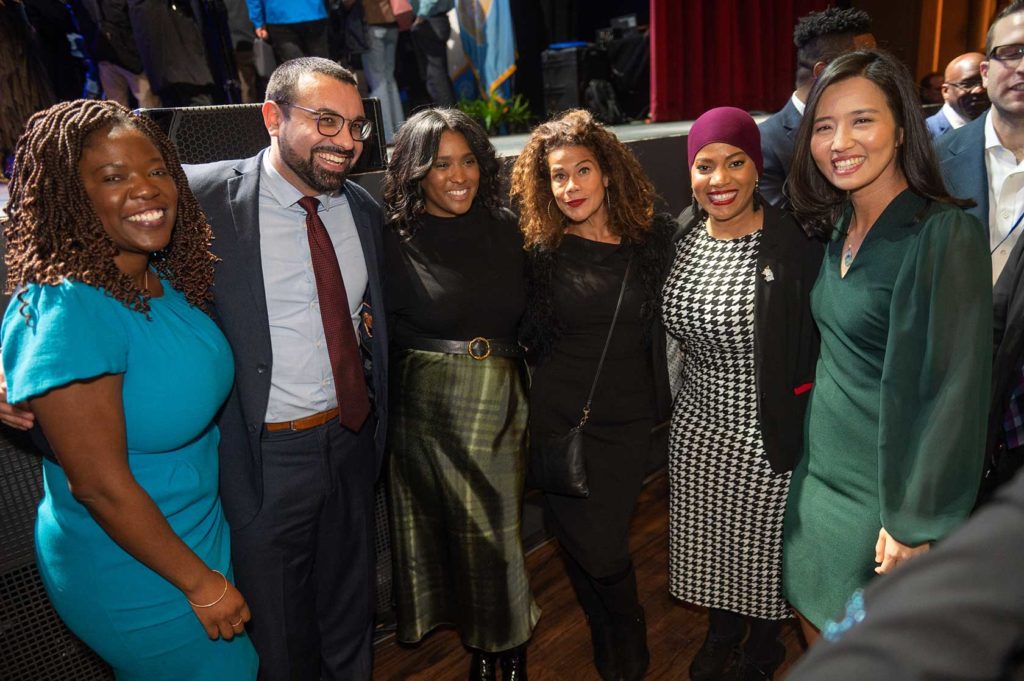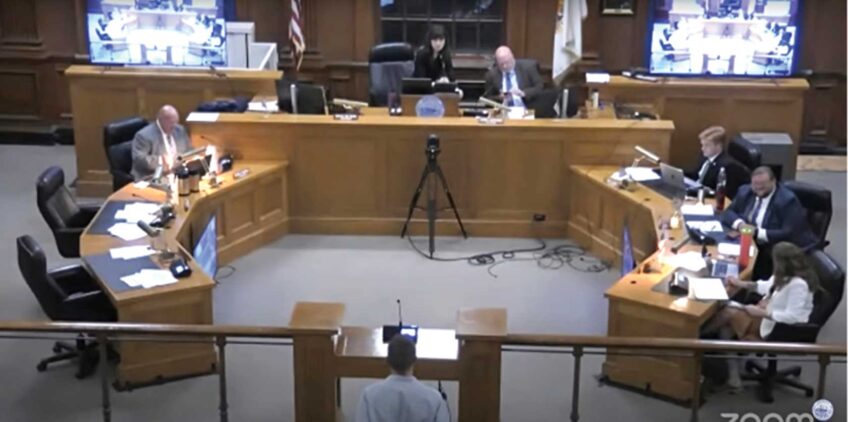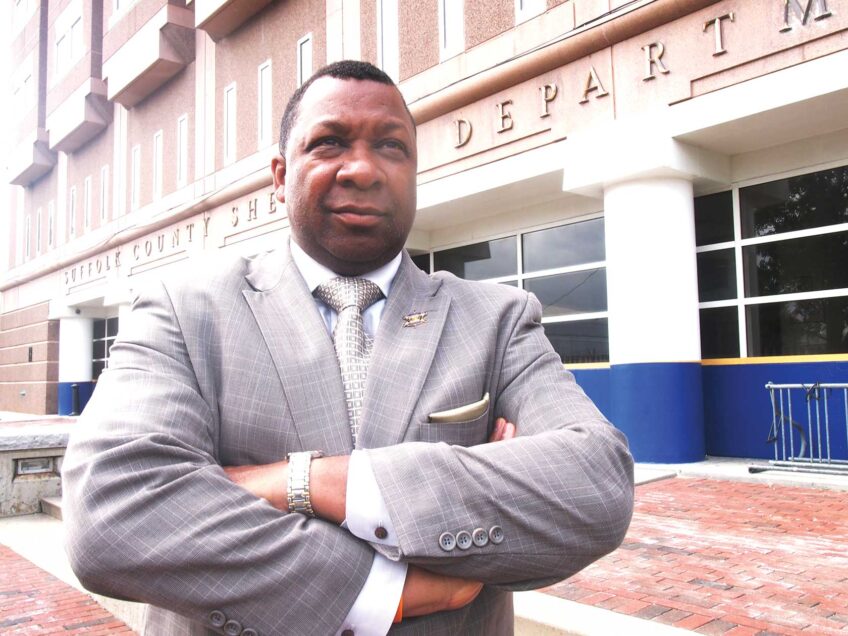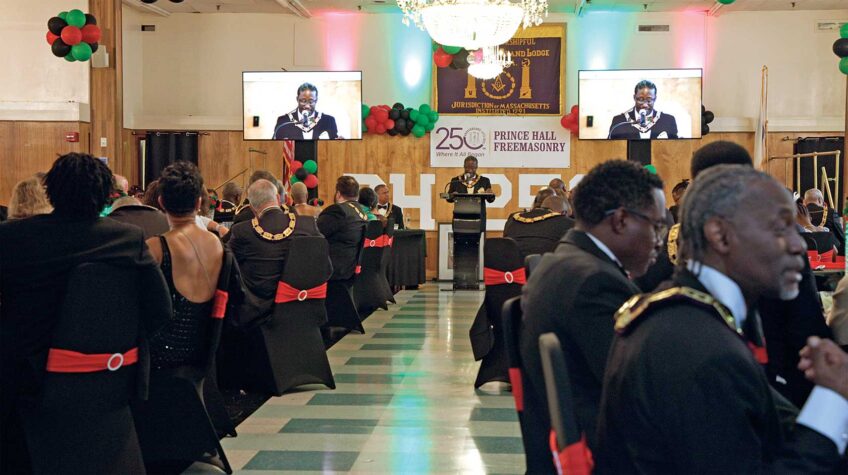
Mayor Michelle Wu began her State of the City speech by name-checking members of her administration, two-thirds of whom, she noted, are people of color.
While Boston was declared a so-called majority-minority city following the 2000 U.S. Census, Wu’s administration marks the first time people of color make up more than a third of cabinet positions in a mayoral administration.
“We’re BPS parents and graduates,” Wu said. “We speak Spanish and Arabic, Vietnamese, Haitian Creole and more. We speak honestly about Boston’s past, present and future, because we’ve lived the challenges and shared the dreams of the families we now get to serve.”
For decades, activists in communities of color have advocated for greater representation in city government, often pressing mayoral candidates on their commitment to assembling a diverse administration. But for many years, most top positions in city government — those with a significant budget, the power to hire and make decisions that affect the lives of Boston residents — have been held by whites.
“The appointment of a diverse cabinet is absolutely critical to making sure that policy is implemented equitably,” said former City Councilor Tito Jackson. “It’s encouraging to see a cabinet that is a real refection of the city.”
Among those in top positions in city government are Boston Police Commissioner Michael Cox, Chief of Economic Opportunity Segun Idowu, Chief of Human Services José Massó and Chief of Planning Arthur Jemison, who is the first person of color to lead the Boston Planning and Development Agency.
Like the 38-year-old mayor, many of the Cabinet members are more youthful than their predecessors in the administration of former Mayor Martin Walsh.
District 6 City Councilor Kendra Lara, who was a youth organizer during the administration of Mayor Thomas Menino, says the culture in City Hall has shifted during the first year of the Wu administration.
“It definitely feels like a new culture there,” she said. “They’re more accessible than in past administrations. There used to be a brick wall between the City Council and the cabinet. The walls are more porous and there’s more collaboration.”
Beyond policy, having diverse cabinet members could provide better opportunities for people of color within city government. During past administrations, departments such as the Boston Public Schools and the Department of Health and Human Services that have had Black or Latino leadership have also had higher numbers of people of color in managerial positions and in better-paying jobs.
Overall in city government, whites represent 64% of those earning more than $100,000 a year and 27% of those earning less than $20,000 a year. Blacks, on the other hand, represent 21% of those earning more than $100,000 a year and 43% of those earning less than $20,000 a year.
Latinos, who make up 20% of the city’s population, account for 15% of city workers and are similarly concentrated in the lower paying jobs, representing just 9% of those earning more than $100,000 a year.
But in Health and Human Services, headed by a succession of Latino directors in recent years, Black workers represent 50% of those earning more than $100,000 a year and Latinos represent 25%.
Little more than a year into her administration, Wu still has much ahead of her. She has just begun an ambitious goal of separating the function of city planning out from the Boston Planning and Development Agency, the first step in dismantling the agency, which was created in 1957 to manage the city’s urban renewal processes.
NAACP Boston Branch President Tanisha Sullivan said her organization will be monitoring the Wu administration’s progress on issues such as contracts with minority businesses.
“It’s good to see increased diversity at decision-making tables,” Sullivan said. “The question is, what is the impact of those diverse voices, and what is going to be the difference in the quality of life for residents of Boston in having a more diverse table? It will be important to see how these new leaders use their positions to make a difference for all of Boston.”
Accomplishments to date
In her State of the City address, Wu gave an overview of her administration’s accomplishments to date, including efforts to decentralize the drug treatment services in the Mass and Cass area and secure housing for homeless people struggling with addiction; the city’s response to the month-long Orange Line shutdown; the piloting of three fare-free bus routes; the expansion of bike paths; and the completion of the City Hall Plaza reconstruction.
Wu also highlighted the Boston Police Department’s removal of 900 unlawfully possessed guns and the lowest rate of violent and property crime in the last 15 years. She cited $100 million in contracts awarded to businesses owned by women and people of color, including contracts for school meals contract and for snow removal.
“And we did all this on top of filling 5,000 potholes, collecting more than 500 tons of curbside composting and plowing through 53 inches of snow last year,” Wu said.







